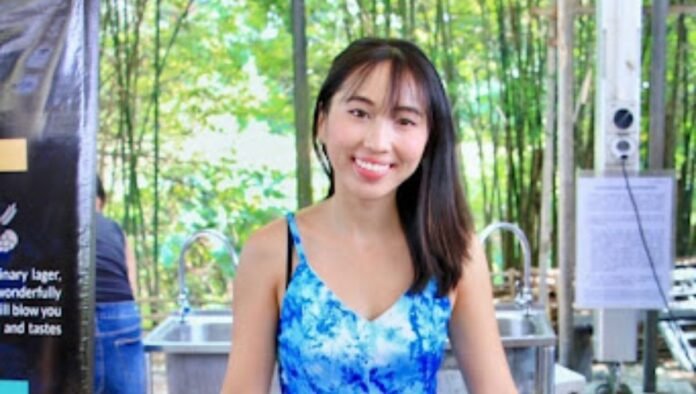Andrea Lee’s struggle with eating disorders started after a breakup while she was in her early 20s. That’s when she became highly conscious of how she looked.
Her quest to shed some weight quickly turned into an obsession with exercise – up to two hours of HIIT workouts a day. She also ate mainly fruits, raw salads and oatmeal, consuming only 800 to 1,200 calories a day.
“I thought [that] maybe if I change my outer appearance or maybe lose some weight…I would look better,” the 29-year-old said.
Ms Lee’s fixation on weight loss became worse when she started dating a man of slim build, who’s now her husband. “His thigh was the size of my arm,” she said.
She wanted to lose even more weight to look compatible with him, although he’s all fine with her appearance.
From 2011 to 2015, Ms Lee lived alone while pursuing her Communications degree in Australia. No one could monitor her eating habits.
She obsessively weighed herself every day. Losing weight gave her a sense of control.
At 156 cm tall, her weight dropped from about 48 kg to around 36 kg, which is classified as underweight. She also lost her period.
“I did lose a lot of weight but I looked like a skeleton,” she said.

According toDr Henny Tan, senior clinical psychologist at Promises Healthcare, there are several psychological factors that increase one’s likelihood of developing eating disorders. Some of these factors, such as low self-esteem, unhealthy perceptions about body image and the need for control, are aligned with Andrea’s experiences.
Ms Lee’s eating disorder developed into anorexia nervosa as well as orthorexia, which refers to a person’s obsession with eating clean and healthy food. To avoid having to eat unhealthy food, she stayed away from all social gatherings.
“I was totally cutting myself off from my friends and my family so that I can control my environment and what I eat,” she shared.
Having an eating disorder can become isolating, noted Dr Tan, not to mention its impact on physical health and “a myriad of medical complications”.
However, Ms Lee had a change of heart after learning about her mother’s heart disease.
She said: “The idea of losing her was terrible and [I was] not even taking care of my body well…I had the fear of dying early too so after that, I started putting more effort in eating more and going to recovery.”
She started taking more carbohydrates, which she had been avoiding for years. She also looked for healthier ingredients to create desserts that both she and her mother could indulge in without the guilt, since they have a sweet tooth. Her sugar-free and butter-free bakes were an instant hit with her family and friends.
In 2017, she founded The Clean Addicts and started selling healthy cakes and brownies online. Last year, she turned her online business into one with a brick-and-mortar shop.
The former media writer is also a certified nutrition coach and a raw food chef certified by vegan culinary schools Matthew Kenney Culinary Academy and Sayuri Healing Foods.
Ms Lee has gone on to marry the man who supported her throughout her battle against eating disorders.

Andrea Lee with her husband.

